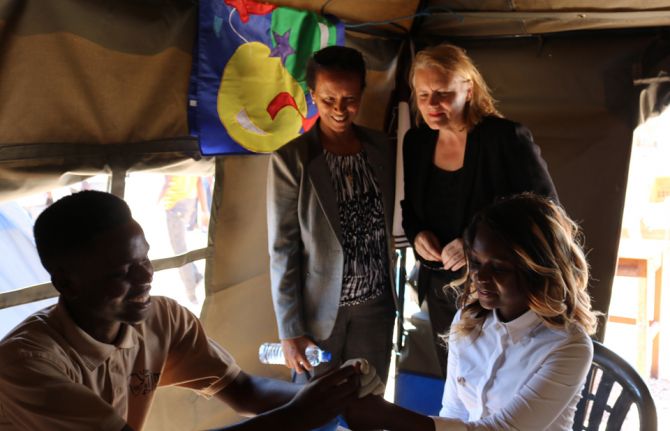



Update
Zambia offering antiretroviral therapy regardless of CD4 count
18 August 2017
18 August 2017 18 August 2017Zambia has adopted the World Health Organization’s (WHO) guidelines on offering all people living with HIV antiretroviral therapy regardless of their CD4 count. Edgar Chagwa Lungu, the President of Zambia, made the announcement at the launch of Zambia’s inaugural HIV Testing, Counselling and Treatment Day in Lusaka, Zambia. The day replaces the annual Voluntary Counselling and Testing Day, which was commemorated between 2006 and 2016.
Of the estimated 1.2 million people living with HIV in Zambia, only 67% know their status. There are therefore approximately 400 000 people in Zambia who do not know that they are living with HIV. This situation calls for intensive, innovative and effective HIV testing strategies that are in line with WHO and UNAIDS global guidance.
Zambia has adapted the WHO consolidated guidelines on HIV testing services in line with the key principles of consent, confidentiality, counselling, correct test results and connection to HIV prevention, treatment and care (the 5Cs principles).
UNAIDS and World Health Organization position on mandatory testing
The World Health Organization and UNAIDS do not support mandatory or compulsory testing of individuals on public health grounds.
The only mandatory testing that the World Health Organization and UNAIDS support are:
- Screening of donors prior to all procedures involving transfer of bodily fluids or body parts, such as artificial insemination, corneal grafts and organ transplant.
- Screening for HIV and other blood-borne infections of all blood destined for transfusion or for manufacture of blood products.
Zambia has been implementing provider-initiated testing and counselling since 2008. WHO and UNAIDS have welcomed the government’s call to reinforce the implementation of universal routine HIV testing in line with the 5Cs principles. In this regard, WHO and UNAIDS will continue to collaborate with the government and other stakeholders to provide technical support and guidance in the review and dissemination of HIV testing services protocols and standard operating procedures to ensure that they are in line with the global recommendations of human rights-based approaches.
Quotes
“We need to impress on our people the importance of repeating HIV testing, and ensuring that those who test positive are not stigmatized.”
“It is vital that people who test HIV-positive access treatment immediately, regardless of their CD4 count.”



